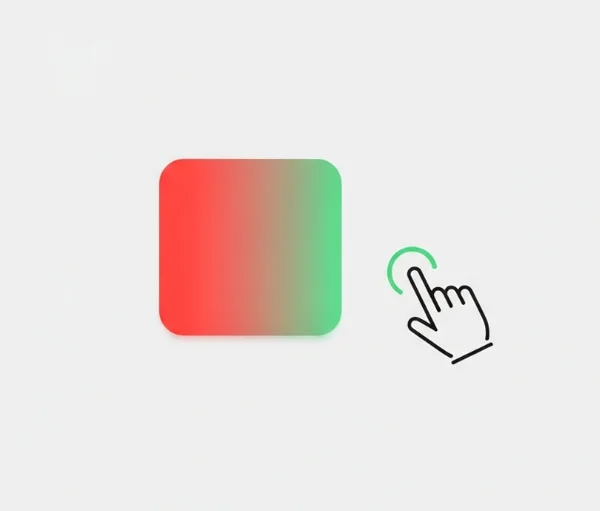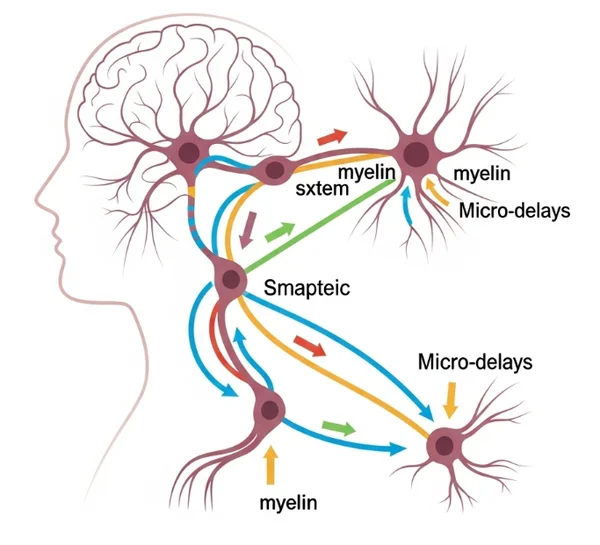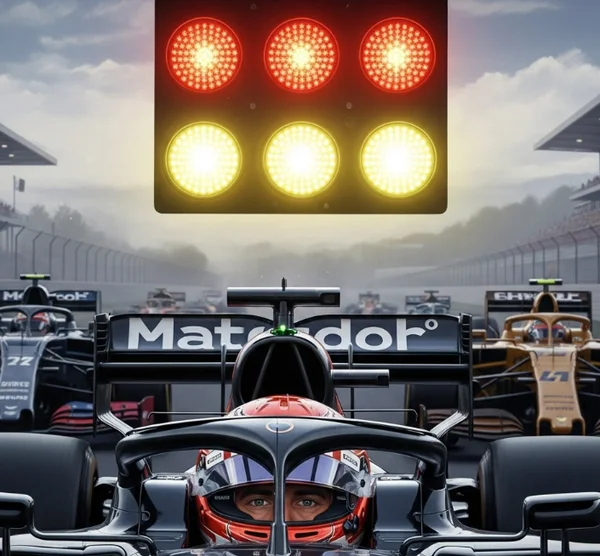Fastest Human Reaction Time: Records, Limits & F1 Drivers
June 22, 2025 | By Marcus Adler
Humans are fascinated by speed. From the hundred-meter dash to the speed of thought, our ability to react quickly is a captivating aspect of our physiology. What is the fastest reaction time ever recorded? This question sparks curiosity about the fastest human reaction time and the ultimate limits of our reflexes. This article delves into the incredible world of reaction speed, exploring official records, the theoretical human reaction time limit, and the phenomenal abilities of elite performers like Formula 1 drivers. And if you're curious about your own capabilities, you can always take a quick reaction time test on our site!
Defining and Measuring the Fastest Human Reaction Time
Before we chase records, it's crucial to understand what we're measuring. How fast can humans react?
What Counts as "Reaction"? Simple vs. Choice Reaction Time
Generally, when we discuss the fastest human reaction time, we're referring to simple reaction time – responding to a single, anticipated stimulus, like clicking a mouse when a light changes. This is different from choice reaction time, which involves selecting a response from multiple options and is inherently slower. Our online reaction speed test primarily measures simple visual reaction time.

Standardized Testing Methods
To accurately measure reaction speed, standardized methods are essential. These typically involve presenting a visual or auditory cue and precisely timing the individual's response. The conditions, stimulus intensity, and measurement tools all play a role in the recorded human benchmark.
The Record Books: Unveiling the Reaction Time Record
So, who holds the reaction time record? Pinpointing a single, universally accepted reaction time record is challenging due to varying test conditions and verification processes.
Verified Visual Reaction Time Records
Official records, often cited in scientific literature or by organizations like Guinness World Records, suggest that the fastest human reaction time to a visual stimulus is typically in the range of 100 to 200 milliseconds (ms). Figures around 120-150ms are often considered exceptionally fast for visual stimuli.
Notable Claims and Unverified Feats
You might hear anecdotal claims of even quickest reaction times, sometimes dipping below 100ms. While intriguing, these fastest reflexes are often difficult to verify under strict laboratory conditions and may involve different types of stimuli or anticipation.
Challenges in Confirming a Definitive "Fastest"
The quest for the absolute visual reaction time record is complicated by factors like individual alertness, practice, the specific nature of the stimulus (e.g., light intensity, sound volume), and even the precision of the timing equipment.
The Human Reaction Time Limit: How Fast Can We Truly Be?
Is there a hard reaction speed limit for humans? This question delves into the fascinating realm of neurophysiology.
Physiological Constraints: Nerve Conduction and Synaptic Delay
The human reaction time limit is fundamentally constrained by our biology. Nerve impulses travel at finite speeds along axons, and each synaptic transmission (the jump between neurons) introduces a small delay. These biological speed limits add up.

The "Sub-100ms" Barrier: Fact or Fiction?
Can humans react faster than 0.1 seconds? For a deliberate, voluntary reaction to an external stimulus (like a light turning green in our reaction time test), consistently achieving times significantly below 100ms is generally considered to be at or beyond the edge of human physiological possibility due to the aforementioned neural delays. Startle reflexes can be faster, but they are different.
Factors Approaching the Limit
Peak human performance in reaction time is influenced by optimal age, intense focus, specialized training, and even genetic predispositions. While we might not all reach the absolute reaction speed limit, understanding these factors is key.
Elite Performers: Reaction Time of F1 Drivers and Other Athletes
Some individuals operate at the pinnacle of human responsiveness. The elite athletes reaction time is truly remarkable.
The Astonishing Reflexes of F1 Drivers (F1 Driver Reaction Time Insights)
Formula 1 drivers are renowned for their incredible F1 driver reflexes. What is F1 driver reaction time?
Why F1 Demands Lightning-Fast Reactions
From the race start lights (reacting in fractions of a second) to avoiding high-speed incidents, an F1 driver's career depends on their f1 reaction time. The G-forces and immense cognitive load make their reaction speed even more impressive.

Reported F1 Driver Reaction Times
While exact, universally published figures vary, reports and studies suggest that average F1 driver reflexes are often in the 100-200ms range, significantly faster than the average person. Some have been anecdotally reported to be even quicker under specific test conditions.
Training for Elite Racing Reflexes
F1 drivers undergo rigorous physical and mental conditioning, including specialized F1 reaction training drills, to hone their fastest reflexes and maintain peak cognitive function under extreme pressure.
Reaction Prowess in Other Sports
Beyond F1, sprinters reacting to the starting gun (often around 120-180ms), boxers evading punches, and top-tier esports athletes showcase exceptional elite athletes reaction time. Their abilities are a testament to dedicated training and innate talent.

Factors Influencing Your Own Reaction Time Potential
While you might not be aiming for an F1 seat, understanding what influences your reaction speed is still valuable. Factors like age, sleep, stress, and practice all play a part. Curious about where you stand? Why not try our reaction test now?
Marveling at Speed, Understanding Our Own
The fastest human reaction time pushes the boundaries of what we thought possible, with elite athletes reaction time, especially the f1 reaction time, setting an incredible human benchmark. While the absolute human reaction time limit is a topic of ongoing scientific interest, it's clear that human responsiveness is a marvel. Understanding these extremes helps us appreciate our own capabilities and the potential for improvement.
What's the most mind-blowing display of quickest reaction time you've ever witnessed? Share your thoughts in the comments!
Speed Freaks' FAQ: Your Reaction Time Limit Questions
-
Can humans ever react in less than 0.1 seconds (100ms) to a visual stimulus?
For a deliberate, voluntary simple reaction to a visual cue, consistently reacting in under 100ms is generally considered beyond typical human physiological limits due to neural transmission delays. Reflexive actions, like a startle response, can be faster but are processed differently. You can test your visual reaction here.
-
Who holds the current official record for fastest reaction time?
Pinpointing one single, undisputed "official"
reaction time recordholder is difficult as records can vary by testing methodology and the type of stimulus. Organizations like Guinness World Records sometimes list specific feats, but a universal champion for all reaction types is not clearly defined. -
How does an F1 driver's reaction time compare to an average person?
F1 driver reaction timeis significantly faster than that of an average person. While an average person might have a visual reaction time of 200-270ms, F1 drivers often test in the 100-200ms range, showcasing their eliteF1 driver reflexes. -
Does training significantly reduce reaction time towards the human limit?
Yes, dedicated training can significantly improve an individual's
reaction speed, pushing them closer to their personal best and sometimes towards what is consideredpeak human performance. However, the absolute physiologicalhuman reaction time limitis still a barrier. -
Is there a difference between visual and auditory reaction time limits?
Yes, humans generally react slightly faster to auditory stimuli than to visual stimuli. This is because the neural pathway for processing sound is somewhat shorter and involves fewer synaptic connections than the visual pathway. So the
reaction speed limitmight differ slightly.